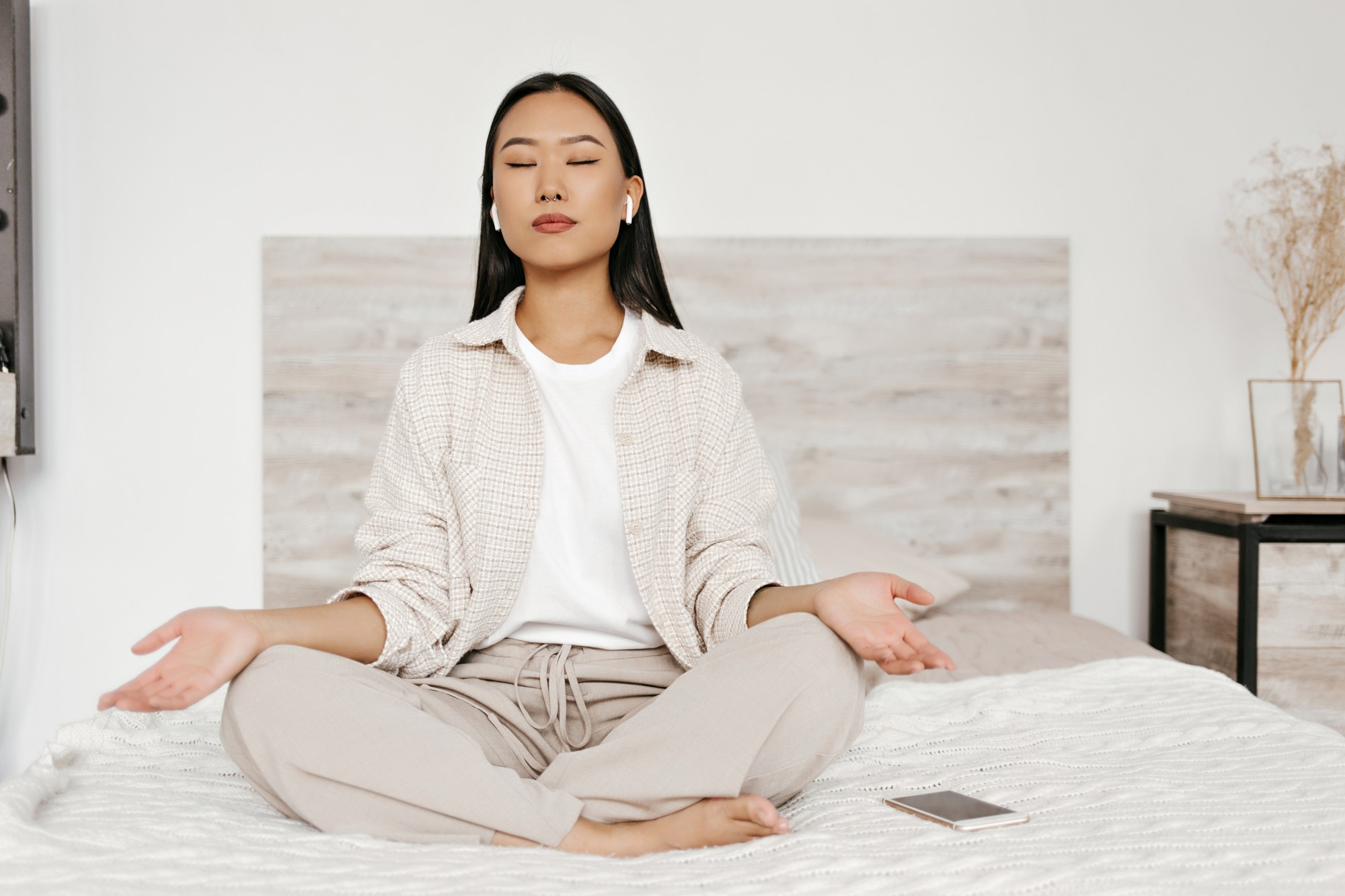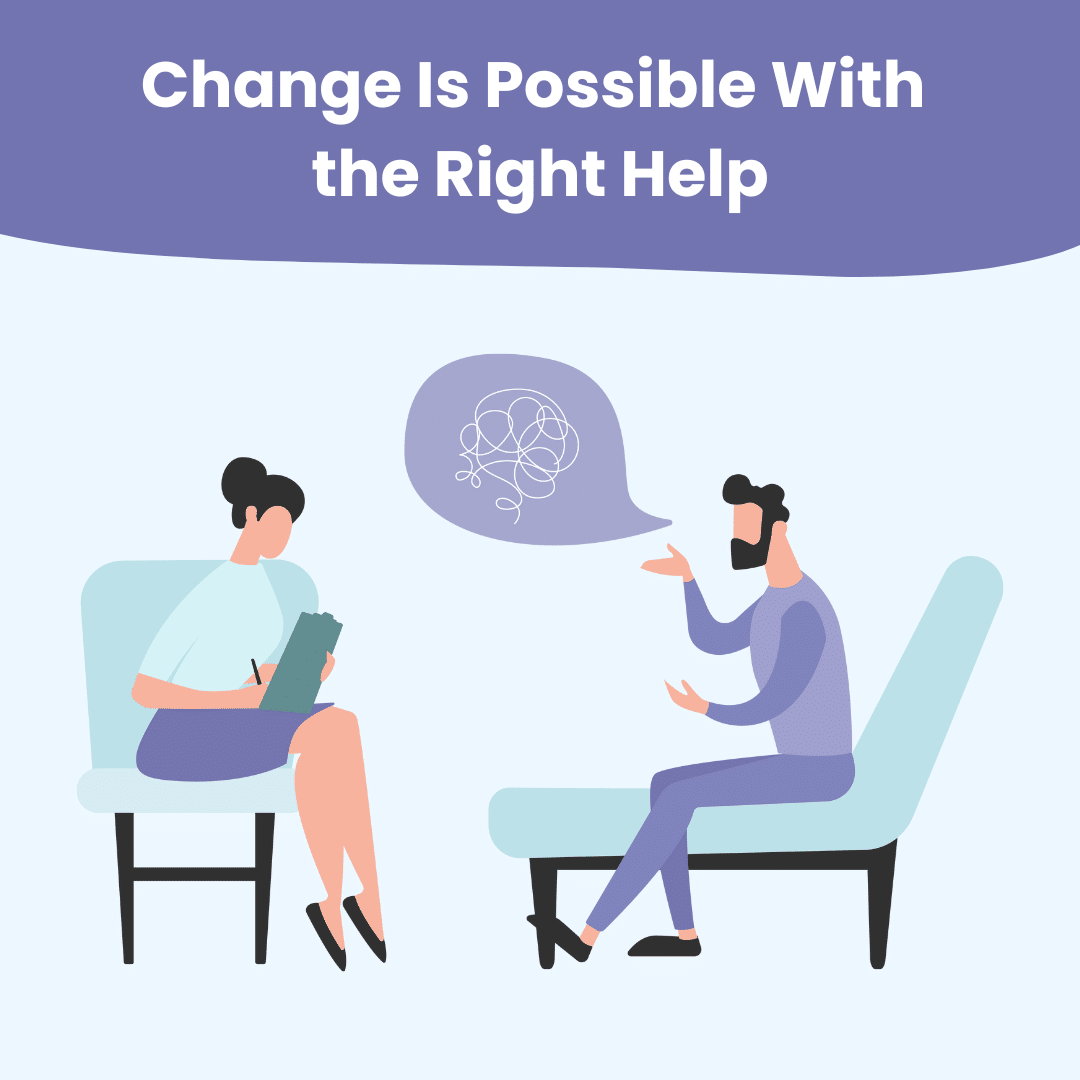
- Published on 24 April 2025
Are you happy in your relationship? Do you feel seen, heard, and understood by your partner?
If yes, you may be in a healthy relationship. If not, your relationship may be healthy, but it may still cause significant emotional distress.
Research shows that couples’ conflicts are directly correlated to anxiety, depression, and stress.
But what do your quarrels in the room have to do with mental health issues? A lot. Issues you have with your partner do not exist in isolation.
For example, if you have a big fight about who washes dishes daily, that frustration may seep into your work, family dynamics, and how you interact with your friends. Hence, it’s no wonder that couples counselling has become increasingly popular.
In this article, we put on our research hats to show you the 4 types of couples therapy and 4 different techniques used in sessions.
This Article Contains:
What Is Couples Counselling?
Couples counselling in Singapore is a type of psychotherapy used for:
- Couples in a relationship
- Individuals looking to enter a new relationship
- Couples looking to navigate new chapters in their life (eg moving in together)
- Couples looking to get married (ie pre-marital counselling)
- Couples hoping to solve family problems or personal issues like social anxiety
Despite common belief, couples therapy is not only for those struggling. You can choose to seek professional help if you want to:
- Better understand your partner
- Learn communication skills to articulate your thoughts and feelings
- Equip yourself with conflict-resolution skills
- Improve your emotional and sexual bond
Research shows that couples therapy reduces conflicts and improves any accompanying emotional or physical health concerns. The benefits are further illustrated through the research participants’ self-reports and reflections on improved communication and compatibility.

4 Types of Couples Therapy
Couples Therapists may use several scientific approaches depending on the following:
- Your presenting problems
- Intensity of the conflict
- Preferences and needs of you and your partner
- Whether you’re looking for short or long-term care
Professionals may also use approaches like dialectical behaviour therapy and modulate it to suit the needs of a couple.
When looking for a relationship counsellor, it’s best to understand what types of therapy they may use and how they can help you.
In this section, let’s review the 4 most common types of couples therapy.
1) Gottman Method
Relationship researcher John Gottman developed the Gottman Method. Through research, he found that even the happiest couples may experience conflicts.
The reality is that healthy conflicts can strengthen any relationship. However, whether the conflicts lead to a stronger or weaker bond depends on how couples resolve the issue.
The Gottman Method helps couples remember why they’re in love and how to stay in love, and it provides tools to work towards common goals.
The session may start with an assessment and help couples with:
- Verbal conflicts
- Intimacy issues
- Trust issues
- Empathy
- Affection
This type of couples therapy is rooted in 7 structured steps. Each step helps couples learn how to interact with each other.
2) Emotionally Focused Therapy (EFT)
EFT for couples focuses on improving communication and developing a secure attachment with each other.
Attachment styles are formed by the brain adapting to the millions of patterns in your relationship.
For example, consider if you tend to give silent treatment (ie refusing to talk) to your partner whenever you’re upset. You will then begin to use the same technique every single time, regardless of the severity of the problem.
Continuing to use the same negative patterns of avoidance can cause significant distress in the relationship and weaken the bond you share with your loved one.
Through EFT, a couples therapist may help you:
- Improve your communication patterns
- Develop new and healthy attachment styles
- Increase your sense of safety and belonging in the relationship
- Regulate and process your emotions in a healthy way
- Feel closer to your partner through compassion and understanding

TYHO Therapists can help with couples conflicts and trust issues, and improve emotional intimacy.

3) Cognitive Behavioural Therapy (CBT) for Couples
CBT is useful for both individual and couples counselling in Singapore.
The therapy involves a mix of cognitions and behaviours and helps you understand how they interact with each other.
For example, consider that you are terrified of not doing a perfect job at work. Your fear may prevent you from even starting a task, leading to procrastination. Fear, which controls your thinking patterns (ie cognitions), may affect your behaviour in a negative way, such as by avoiding work or losing opportunities.
However, you can reframe your thinking patterns through CBT, thereby leading to positive behaviours.
These negative thought patterns are also known as cognitive distortions. Some of these are catastrophising, generalising, and mind-reading.
Any cognitive distortion can affect your relationship. Hence, a couples therapist may use tools to spot these patterns and train your mind to replace them with rational ways of thinking.
4) Behavioural Couples Therapy
Behavioural couples therapy (BCT) was developed to address issues such as addiction or drug use. The goal of BCT is to help couples with addiction and improve their relationship through acceptance and change.
A relationship therapist may teach you:
- How to communicate better
- To find purpose in life and relationships after recovering from addiction
- To express affection and love
Couples may also have to finish any therapy homework assigned. Homework includes practical and step-by-step guidance on building important relationship skills.
A core element of BCT is the recovery contract. The ‘contract’ includes rituals to reward oneself or a partner for abstinence.
Some techniques to practice recovery contracts include:
- Daily affirmations
- Compliance with medication if required
- Peer or community support
- Weekly drug screens
- Positive weekly activities with loved ones or family members
CBT Exercise for Couples
In interpersonal relationships, it can be hard to judge or truly understand what the other person is saying or feeling. At these times, we may mind-read and assume their intentions (also known as the cognitive distortion called mind-reading).
Our negative beliefs about the person or ourselves may affect how we engage in the relationship.
The CBT exercise mentioned here can help you alter and replace these distortions with rational thoughts.
The Model:
Our thoughts follow a sequence known as the cognitive model:
- Situation: A conflict occurs
- Thoughts: You have automatic negative thoughts
- Emotions: The thoughts lead to negative emotions
- Response: You respond negatively to the situation based on your thoughts and feelings
Example:
- Situation: You surprise your partner by cleaning their room, but your partner doesn’t notice or show their appreciation for your effort
- Thoughts: You may immediately think, ‘They don’t care about me’
- Emotions: You may feel hurt, upset, angry, or sad
- Response: You give your partner the silent treatment without explaining why you’re upset
The activity:
Whenever you have a conflict with your partner, try using the above model to note down your experience. The exercise may automatically help you identify the gaps in your thinking or emotions.
4 Techniques Used During Couples Counselling Sessions
Like the above exercise, you may engage in various activities and homework throughout couples counselling.
The techniques help you break out of negative patterns in your thinking, emotions, and behaviour.
Let’s look at some common techniques used during couples counselling in Singapore.
1) Affect Regulation
Affect regulation may teach you how to process and regulate your emotions.
When we’re feeling intense emotions like anger in a relationship, it’s often easy to put away years of hard work by using hurtful language or behaviour.
Hence, protecting your relationship from these bursts of emotions is important.
One example of an affect regulation technique is grounding.
During sessions, you may learn to move away from overwhelming negative feelings or memories. The idea is to shift your focus from the stressor (eg anger) to the external environment.
To do so, you can identify 5 objects in the room that are blue, step out of the situation by walking in the sun, or observe 4 different kinds of smells.

2) Tracking Patterns
Tracking is a technique used commonly in almost all types of couples therapy.
Only through tracking your response patterns can you truly change them. It’s also important to gain an understanding of your patterns.
If you’re constantly sad in a relationship, why are you feeling that way? Have you previously experienced any heartbreaking relationships? Does it stem from your negative childhood experiences? Do you have parents who constantly gaslight you?
These are some of the questions you may explore during couples counselling sessions. To track patterns, the therapist may ask you to describe situations to create ‘pictures’ of the events.
When you watch a movie, it’s quite easy to understand where everything went wrong.
The idea is similar. Your ‘picture’ is then explored and analysed to establish new patterns.
3) Circular Questions
Circular questions are commonly used in EFT and behavioural couples therapy.
Couples counsellors may explore both your and your partner’s viewpoints based on these questions.
The characteristics of these questions should:
- Help define the conflict
- Explore what the ideal response should’ve been like
- Invite consideration regarding how the conflict may have affected one another
- Explore alternative behaviours to change the conflict patterns
4) Love Maps
Love maps is a technique used in Gottman’s Method. The main idea behind these maps is to get to know each other as intricately as possible.
Think of it this way: When you’re in a relationship, you’re handing over your emotional and cognitive map to your partner. This map allows them to navigate what actions make you feel a certain way and vice versa.
Your inner world, however, is complex and constantly changing. Hence, love maps are taught as long-term skills you can use throughout life.
As your directions and emotions change, so does the navigation on the map. To build your love maps, the couples therapist may ask both of you several questions. You may get to know your partner better as you keep writing answers to these questions.
Key Insights
- Couples counselling helps partners resolve conflicts, improve communication and strengthen their bond.
- Effective couples therapy focuses on identifying and changing negative patterns in interaction.
- The 4 common types of couples therapy are the Gottman Method, EFT, CBT for couples, and behavioural couples therapy.
- The 4 common techniques used during sessions are affect regulation, tracking patterns, circular questions, and building love maps.
- Couples therapy works. Putting in dedicated and non-negotiable time and effort for each other can transform your relationship.

Related Articles
Latest Articles
Recent Posts
- Understanding Employee Assistance Programs in Singapore (And Why Your Company Needs One)
- A Therapist’s Guide to Setting Boundaries with Parents
- Anger Management in Singapore: Top 6 Benefits
- Individual vs Group Counselling in Singapore: What’s Right for You?
- Thinking of Switching Your Therapist in Singapore? Read This First


